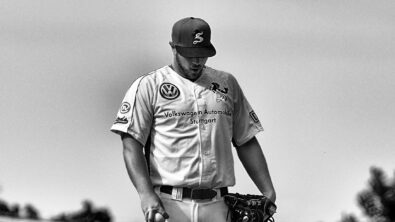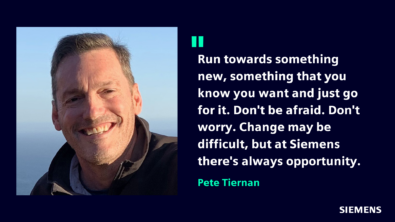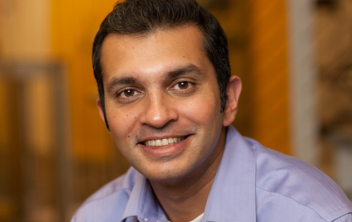Mohamed Alarabi

Mohamed Alarabi checks many of the boxes you’d suspect for a career in technical product engineering — bachelor’s and master’s degrees in engineering, then a string of technical and business development roles at various companies, including Siemens, where he now supports Siemens Opcenter for production management and manufacturing execution. Look again and perhaps spend time in conversation, as I was lucky to do, and it’s soon clear that a big part of his story are his passion pursuits outside of Siemens in a range of philanthropic and volunteering pursuits, most focused on his home country of Libya, which he left in the midst of the country’s political turmoil at the start of the previous decade. He talks here about everything from serving as a national point of contact for Libya’s Space Advisory Council to drilling wells in the wake of the devastating floods last year, and how he balances a dedication to create positive change in a place that he’s from, even as he continues to advance professionally working in software in the United States for Siemens.
Can you tell me a little bit about yourself?
I am from Benghazi, Libya, a beautiful Mediterranean city nestled between Egypt and Tunisia. I grew up there, but due to political turmoil and conflict, I temporarily put my education on hold for a couple of years. In 2014, I made the decision to relocate to the United States to pursue my studies further, initially residing in Seattle for a couple of years. Eventually, I found myself at Clarkson University in upstate New York, which is notably colder compared to Africa, where I had lived my whole life. Although I have explored various parts of Europe, the United States, and especially upstate New York, was uncharted territory for me. After completing my undergraduate studies at Clarkson University, I earned a degree in mechanical and aerospace engineering, which has been a lifelong passion of mine. Beyond my academic pursuits, I played a role in space applications beyond my work responsibilities. Specifically, I served as the national point of contact for the Space Advisory Council for Libya – an entity associated with the United Nations – dedicated to promoting the safe use of space applications and addressing space pollution.
My professional journey led me to the aerospace industry for a few years until the advent of COVID prompted a shift towards a remote working lifestyle. In May 2021, following the completion of my master’s degree in engineering management with a focus on artificial intelligence (AI) at Clarkson University, I joined Siemens. While my previous experience at Amphenol Aerospace was applicable, the transition from aerospace production and software development to digital manufacturing was a substantial change. Nevertheless, seizing the opportunity for a career shift, I am grateful for the decision I have made. Having previously worked in the aerospace sector, transitioning to software presented some differences, yet also striking similarities. Software development is an ever evolving and demanding field that provides a continuous learning experience, and I find myself learning new knowledge every day.
How did you get involved with volunteering?
Volunteering has been an integral part of my life from an early age. My mother, a philanthropist, leads a non-profit organization advocating for women’s rights in Libya. I’ve been a dedicated volunteer for this cause throughout my life, committing to weekly contributions. This commitment has become a fundamental aspect of my identity, extending even after relocating to the United States. Serving as an executive board member of the National U.S. Libya Relations Council, I played a key role in promoting positive relationships, technology sharing, and educational exchanges between Libya and the United States. Additionally, I have actively supported the National Organization of Amazonat Libya, a prominent advocate for women’s rights and political participation in Libya and Benghazi. In recent years, I joined the Network of Arab Professionals in the U.S. and served as the president of the Muslim Student Association at Clarkson University.
My passion for volunteering runs deep, and if I weren’t pursuing a career in engineering, I would likely find myself working for organizations like the United Nations. I’ve seamlessly integrated my love for volunteering with my engineering profession, finding a balance between the two. In my current role in the digital manufacturing sector, I have taken on the responsibility of being a diversity, equity, and inclusion (DEI) lead along with another colleague. Our focus is on promoting inclusion, particularly within the gender equity program, aiming to enhance diversity within Siemens Digital Manufacturing. While the company is making strides, I believe there is room for improvement, and I am grateful to contribute to this initiative.
Siemens’ support for volunteerism, including dedicated volunteer days and paid time off, aligns with my values. During my time in Florida, I had the incredible opportunity to participate in a heartwarming volunteer trip to the Special Olympics, where I served as a cheerleader for the competing athletes. This experience left a lasting impression, prompting me to continue engaging in at least one significant volunteer event each year and making the most of volunteer trips.
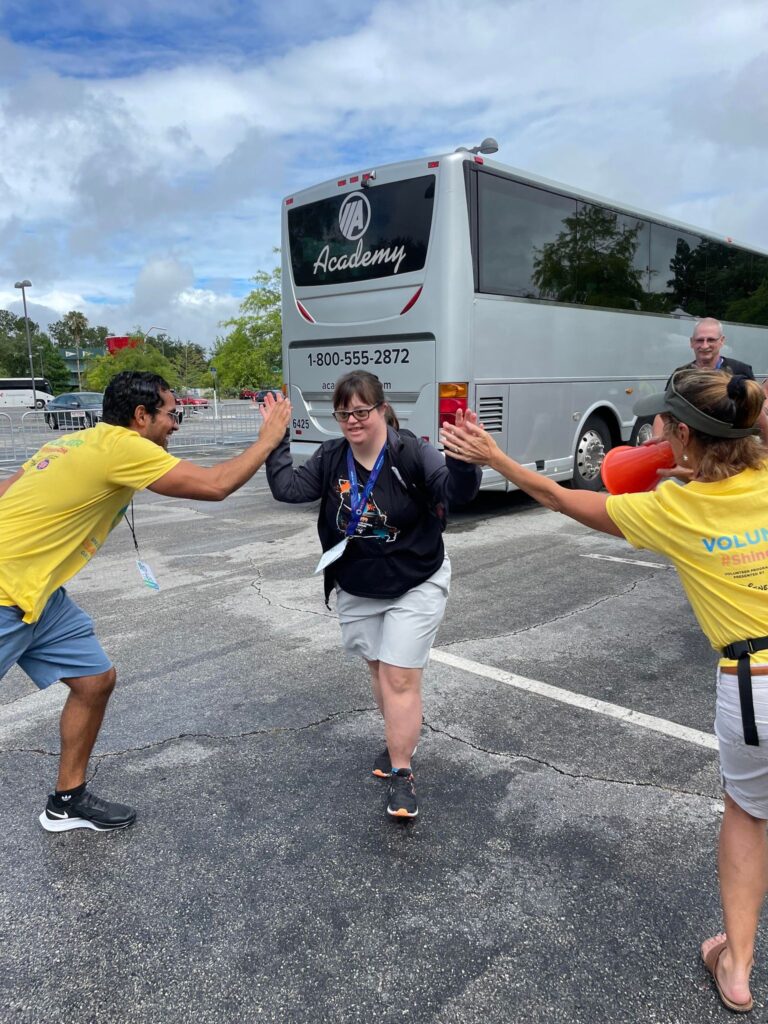
You traveled to Derna, Libya, to help aid the locals that were impacted by the flood this past Thanksgiving. Can you talk about how this trip came to fruition and what that experience was like?
This Thanksgiving marked the most significant trip I’ve taken to date, prompted by the catastrophic event in Derna, Libya, a stunning Mediterranean city located three hours east of my hometown, Benghazi. Known for its breathtaking waterfalls and mountains, Derna faced one of the most massive floods in modern human history on September 11, 2023. A Mediterranean storm caused the collapse of two dams, resulting in millions of cubic meters of water submerging towns within three hours. Tragically, 11,000 lives were lost during this devasting event, and being away from my country during this challenging time was especially painful for me.
While my mother’s organization and local volunteers were actively providing aid, I felt a deep need to contribute more than online volunteering and fundraising efforts from the United States. Collaborating with the National Organization of Amazonat in Libya, I sought to understand the most pressing needs on the ground. Despite the staggering loss of life, the survivors faced a dire situation—residents in mountainous areas were left without access to fresh water due to the contamination of city water during the flooding.
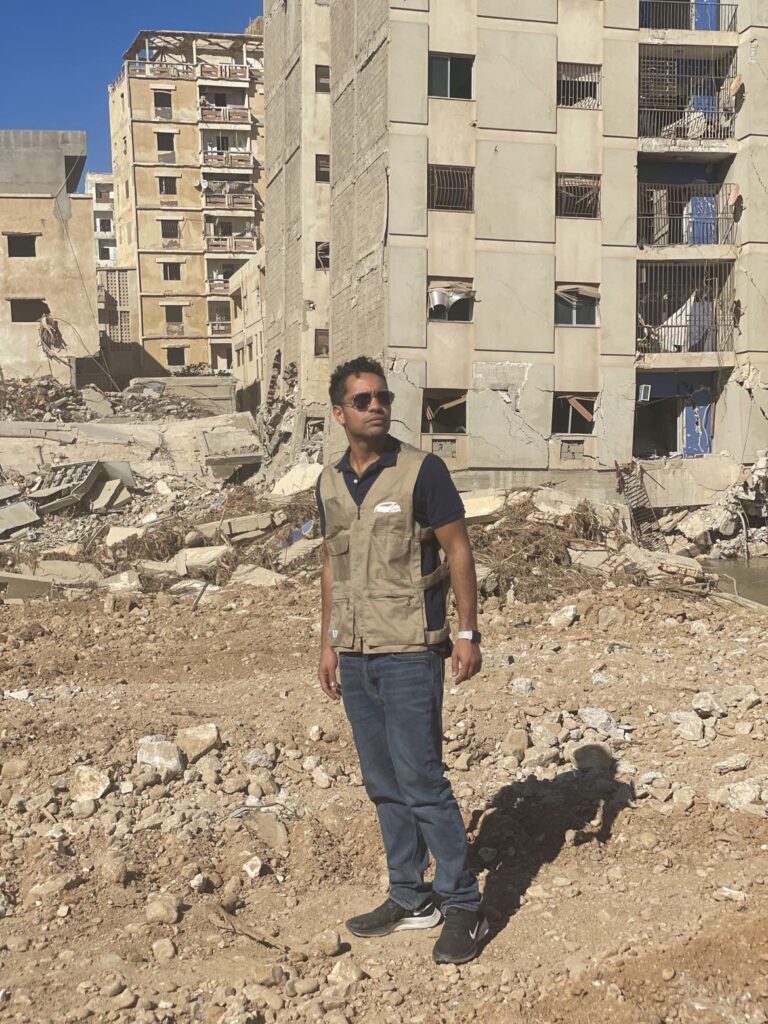
Motivated to make a meaningful impact, I organized a trip to one of the water-deprived mountain regions. Working alongside local drill engineers and the community, we successfully drilled wells, ensuring a vital water supply for nearly 300 people in that specific area. While thousands remained affected, the ability to fund and establish at least one well personally resonated with me. I share this experience to encourage others, emphasizing that leading by example—being physically present and actively involved—is a powerful way to make a difference.
This journey held particular significance for me, as it also marked my return to Benghazi after a decade-long absence due to the challenges of long-distance travel. Despite the difficulties, I seized the opportunity during the Thanksgiving break and volunteer days. The trip was emotionally fulfilling, with the locals expressing gratitude for our efforts. Even now, they occasionally reach out, making it a source of pride and joy for me. While the work is far from complete, I hope more individuals can step in and continue the collective effort to rebuild and support the affected communities.
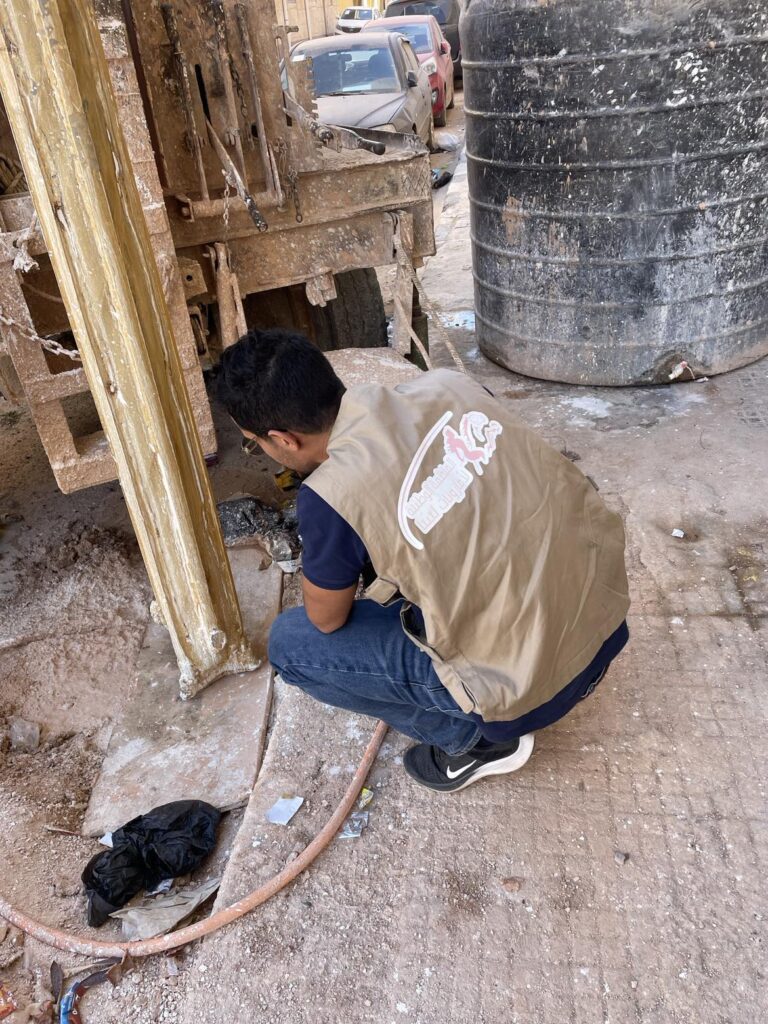
Do you have suggestions for those interested in volunteering but unsure where to start?
I believe that each of us has the capacity to undertake initiatives like the trip I embarked on. During an interview for the Diversity, Equity, and Inclusion (DEI) initiatives in the digital manufacturing segment, I was asked, ‘Why are you interested in doing this?’ Although I am a full-time technical product manager at Siemens, taking on this additional part-time role demands a significant time commitment. However, I was drawn to this volunteer initiative within Siemens because it seeks to address barriers and injustices prevalent in various forms and places. Injustice isn’t solely man-made; it can be circumstantial and exists universally, affecting numerous individuals. One of my favorite quotes from Martin Luther King Jr. resonates deeply: “Injustice anywhere is an attack on justice everywhere.” Observing injustice compels us to act and fight against it with all our might. Using one’s voice to combat injustice is a powerful tool, and anyone with influence, wealth, and power can contribute to this cause.
In the world, unfortunately, there is no shortage of injustice. Whether it’s supporting animals, children, or those in need, there is always something we can do to make a positive impact. If each person took a small step to combat injustice, collective efforts would eradicate many troubles, contributing to a better world. While I don’t claim to know everything, the happiness derived from volunteering is tangible and contagious. When I initiated support for Libya, a colleague was inspired to do the same. Collaborating, we doubled our efforts, and this collaborative spirit became infectious. Observing someone nearby take initiative spurred others, creating healthy competition with a shared goal of promoting goodness. I encourage everyone to view philanthropy as trendy and cool, fostering a cultural shift towards inclusivity. This shift, both in the United States and elsewhere, is a positive step towards creating a better society and world. To those interested in volunteering and philanthropy, my message is simple: How can we do more? How can we support you more? How can we collectively combat the common human enemy called injustice everywhere?
How do you balance your role at Siemens as a Technical Product Manager with your volunteer work and passion projects?
Taking on this challenge demands considerable effort, but when you find joy in what you do, you can elevate your work to perfection. As Aristotle wisely stated, “Pleasure in the job puts perfection in the work.” Enjoying your tasks not only enhances your performance but also makes the experience enjoyable and productive. For me, volunteering serves as a stress relief mechanism. While I spend time on the computer assisting global organizations, I feel blessed to be part of a company like Siemens that encourages the integration of work and volunteering. My voluntary efforts align with the mission of driving equity and inclusion within the company.
Volunteering doesn’t detract from my job; rather, Siemens actively supports and values volunteerism. At Siemens, we have designated volunteer days, and there’s a supportive environment that extends from team members to higher management and even the CEOs, who genuinely care about these initiatives. Siemens actively allocates resources and entrusts individuals, like me and my colleagues, who are passionate about fostering inclusion. Within my team, management, and colleagues, there is exceptional leadership that comprehends the importance of diversity, equity, and inclusion (DEI) initiatives. They willingly step in to cover for me during meetings related to these initiatives, contributing to a supportive environment that allows me to pursue what I am passionate about. I find fulfillment in the knowledge that I can simultaneously contribute to both volunteering and my work with a company, directly impacting my community. Juggling this initiative with a full-time job can be challenging, but the understanding that this is a priority makes a significant difference.
Creating a better and more enjoyable work culture is a shared goal. Achieving physical and business objectives simultaneously brings heightened pleasure, as it goes beyond mere financial rewards. It encompasses intellectual fulfillment and the ability to contribute to a better world. Transforming the world occurs in small pieces, and even changing a segment within a global company like Siemens is a noteworthy success. Despite the considerable time and effort involved, the emotional fulfillment derived from volunteering for these initiatives is its own reward. It serves as a powerful reminder to let go of unproductive habits and focus on endeavors that add genuine value to our work and communities.
What are some of your hobbies outside of volunteering?
I have a deep passion for learning and am currently engaged in mastering multiple languages. Arabic is my primary language, as I grew up speaking it. Additionally, my exposure to Turkish heightened during my father’s diplomatic assignment in Turkey, allowing me to become fluent in Turkish. English is another language in my repertoire, acquired through exposure to Hollywood movies and listening to music, particularly rap from artists like Eminem and Tupac.
I’ve also taken on the challenge of learning Russian, reaching a beginner level, which aids in communication with teams based in Poland and other countries. Currently, my focus is on mastering Spanish. Living in Florida, especially on the East Coast, where Spanish is widely spoken, presents a valuable opportunity. Whether on the soccer field, or as I prefer to call it, football, interactions often occur in Spanish, providing me with an additional avenue for practicing language. Given the uncertainties of the future, I believe acquiring Spanish is a practical skill.
To incorporate language learning into my fitness routine, which is crucial for maintaining my sanity, I started listening to language-teaching podcasts. Admittedly, this can be challenging during workouts, especially when it is a departure from the usual Libyan rap music that typically pumps me up. This experiment in 2024 hasn’t yielded significant success yet, but I’m committed to refining my approach. Recognizing the limitation of 24 hours in a day, I constantly reassess how I can optimize my time to progress as a better human being.
Quick takes
What is one thing on your bucket list that you hope to do?
I have an extensive bucket list, with one of the top priorities being to travel the world and visit the 400+ recognized countries. Another achievable goal on my bucket list is attending the World Cup, scheduled to take place in the Americas in 2026. I can’t wait for 2026 to come because I’m definitely going.
What is one technology you could live without and one piece of technology that you wish they would hurry up and invent?
I wish we had a technology that was about to read people’s minds, 100%. One technology I could live without is movies, because I could spend my time better and focus on learning more.
Do you create what you build, or do you build what you create?
I create what I build. I usually create first and then build later because thinking through things is a good approach. Approaching things from a risk management standpoint means being analytical, being creative, and defining the parameters of what you are trying to build, along with understanding what can go wrong. I create what I build because I tend to think things through before I approach them and invest the time and resources into doing them.
Who would win in a fight—one trillion lions or the sun?
Obviously, scientifically speaking, it’s the sun. It burns at a temperature that our bodies can’t sustain; the sun will get you. I would have to go back to science and say 100% the sun. I feel bad for those lions, but they have chosen a lost battle.
If animals could talk, which one do you think would be the nicest and what one would be the meanest?
Elephants would be the nicest. They know they’re powerful, but they don’t use their power to be mean. I feel like monkeys would be jerks; you can just tell.
